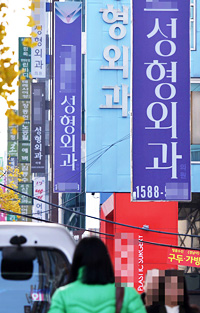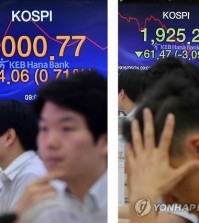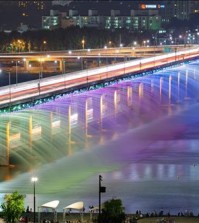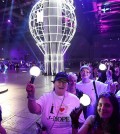- California Assembly OKs highest minimum wage in nation
- S. Korea unveils first graphic cigarette warnings
- US joins with South Korea, Japan in bid to deter North Korea
- LPGA golfer Chun In-gee finally back in action
- S. Korea won’t be top seed in final World Cup qualification round
- US men’s soccer misses 2nd straight Olympics
- US back on track in qualifying with 4-0 win over Guatemala
- High-intensity workout injuries spawn cottage industry
- CDC expands range of Zika mosquitoes into parts of Northeast
- Who knew? ‘The Walking Dead’ is helping families connect
Tougher rules urged for plastic surgery clinics

People walk down a street lined with cosmetic surgery clinics in Apgujeong-dong in Seoul. The clinics shown in the photo are not related to this article.
(Korea Times file)
By Nam Hyun-woo
Calls for tougher regulations and safety measures in the cosmetic surgery industry are growing after a series of deaths occurred during operations.
On March 6, a 34-year-old woman lapsed into a coma while undergoing liposuction and rhinoplasty at a clinic in Gangnam, according to police. She was rushed to a nearby hospital, but died in the ambulance.
Four days earlier, a 33-year-old man lost his life after undergoing jaw resection surgery in Busan. In December last year, a high school graduate was declared brain dead after having rhinoplasty and “double eye-lid” surgery at another clinic in Gangnam.
She has been hospitalized as legal action continues to establish whether her condition was the result of medical malpractice.
According to the Korea Consumer Agency, the number of complaints reported on the negative side-effects from cosmetic surgery increased to 110 last year from 71 in 2009.
Experts point out that clinics should be equipped with appropriate medical equipment to deal with emergencies that can occur during a surgery.
However, most do not have this or any other measures in place.
In data provided to Rep. Choi Dong-ik of the main opposition Democratic Party (DP), 77 percent out of 1,100 clinics performing cosmetic surgery were not equipped with defibrillators or ventilators, which are mandatory devices for first aid. Only 1.2 percent of such clinics in Gangnam have emergency equipment.
Since there are no clear regulations requiring plastic surgery clinics to have this, some doctors do not make the necessary preparations to deal with emergencies, increasing the risk of fatalities during procedures, doctors said.
Also, questionable was pre-operative counseling at such clinics. At one visited by The Korea Times, a staff member, called a “coordinator,” counseled patients before they meet with the doctor. Most of the counseling was about fees, but the coordinator also offered a diagnosis as if she was a doctor.
“Most coordinators are former assistant nurses. Though they are not completely ignorant of medical matters, they are prohibited from diagnosing patients as if they are doctors,” a plastic surgeon said, on condition of anonymity.
On Feb. 21, Rep. Nam Yoon In-soon of the DP and members of Korean Womenlink, a women’s’ rights group, called for a wide-range of inspections for such clinics, a ban on plastic surgery advertisements and heavier punishment for clinics that don’t have emergency medical equipment.
Some experts also called for stricter regulations on cosmetic surgery advertisements, saying that “they recklessly prompt people to take a risk by downplaying the potential hazards.”
In Apgujeong Subway Station in southern Seoul, walls are full of ads for clinics with photographs of “desirable women,” who have apparently benefited from surgery there.
Laws governing medical advertizing state that such billboards must have warnings included details of the potential side effects of surgery, but most have these in such small lettering that it is barely legible. An abundance of plastic surgery ads appeared after the government allowed medical institutions to set up promotions outside their premises in 2012.

















plastic
October 9, 2017 at 1:15 PM
February 2016 – Bondage Video Discussion Forum Archive